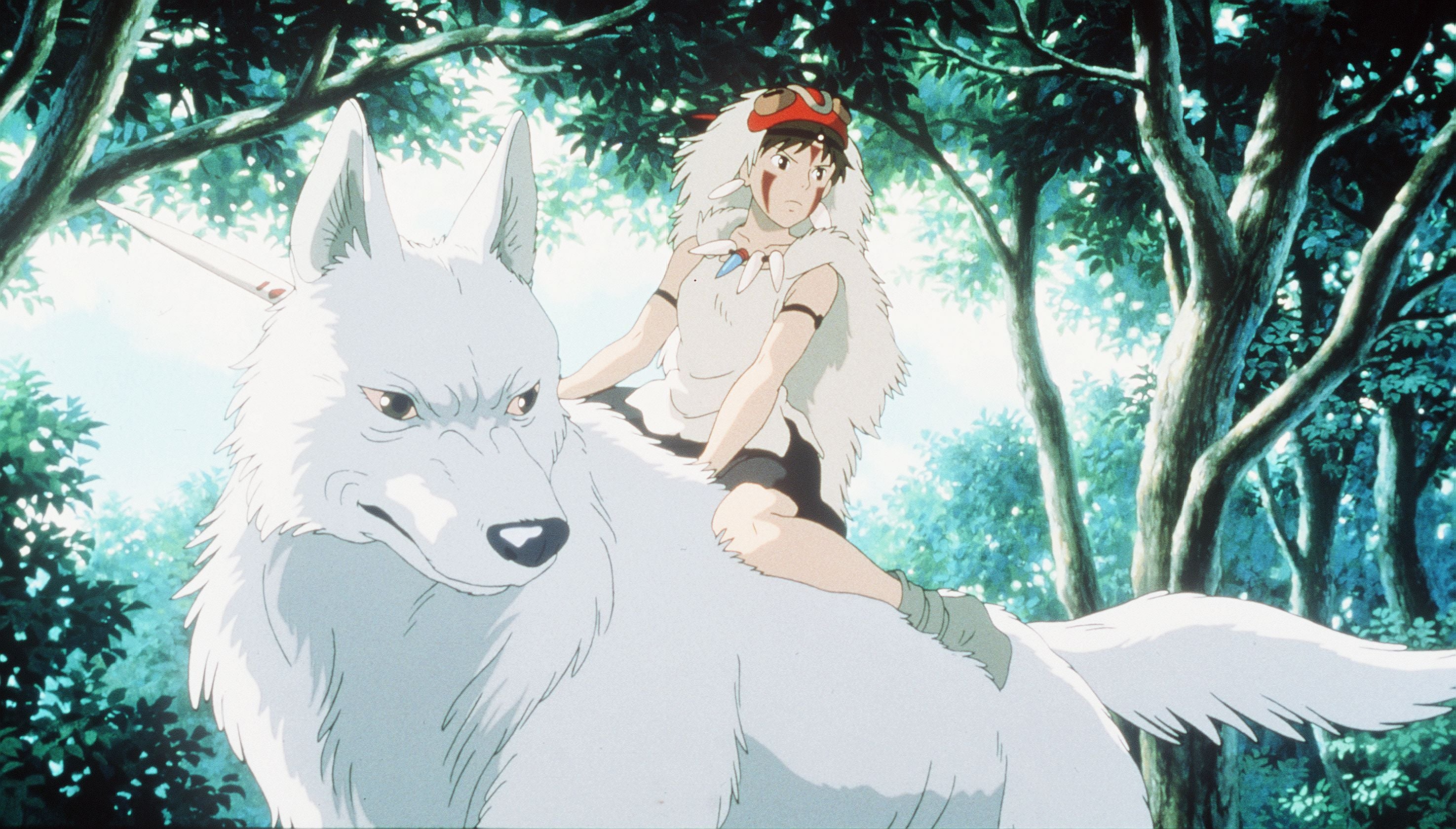Princess Mononoke was ahead of its time over the climate crisis. It offers a message more relevant than ever
Hayao Miyazaki’s fantasy movie was released almost a quarter of a century ago, and we still aren’t listening to the warnings it gives with enough urgency


With Western Canada and the northwestern US in flames and the temperature in Jacobabad, Pakistan, soaring above levels that the human body can handle, Picturehouse’s weekend screenings of Princess Mononoke could scarcely be more timely.
The themes of Studio Ghibli’s animated classic look scarily prescient.
People knew about the climate crisis in 1997, when the film was released. But the softer “global warming” was more commonly in use as opposed to today’s “climate crisis”. There were plenty of people calling for action on it. But they got nowhere near the sort of traction they are getting today.
Nobody was talking about banning petrol cars. Coal was still a thing. The sense that the people who cared about the environment were “bunny huggers”, as Boris Johnson crassly put it, and out of touch with economic reality, was commonplace. It was nearly a decade before Al Gore’s An Inconvenient Truth made its cinematic debut.
Mononoke from its title, from the stills focusing on the character of San with one of her snarling wolves, and the fact that it’s animated, might give western audiences schooled on Disney the idea that this is a “wilderness princess” fable.
It is not. Nor is it really a children’s film, at least not if you’re thinking of younger ones. The film has some violent scenes not commonly found in the work of director Hayao Miyazaki. Heads and arms go flying in the manner of a samurai flick.
Set in a fantastical version of medieval Japan, in which spirits are real, and curses are lethal, its themes are big and complex.
One of those curses is cast on the Emishi prince Ashitaka as a result of an encounter with a demon; a boar god, corrupted and driven mad by an iron ball made in a foundry run by Lady Eboshi, who has been clearing the forest, drawing her into conflict with its spirits, and San, who has been raised by them and hates her own kind for their destructive ways.
Films and TV with an environmental theme can often fall into the trap of preachiness. Princess Mononoke does not. Nor does it make its capitalist, Eboshi, the epitome of evil as Hollywood sometimes does (with not a little hypocrisy).
While her tearing down of the forest is condemned, the town she runs, and her business operation sited there, has a rough and ready equivalent of today’s ESG (environmental, social, governance). Well, at least the second of those. She is, for example, accepting of sex workers, shunned elsewhere, and people with leprosy (ditto) whom she wants to cure.
Prince Ashitaka, trying to get the fatal curse upon him lifted, ends up in the middle of the conflict which serves as a metaphor for the conflict between humans and nature today. Its maker Hayao Miyazaki’s warning is very clear: if nature is pushed too hard in this unequal struggle, nature is going to bite back.
This is exactly what’s playing out in the parts of the world I mentioned at the outset. It is what is playing out as the seas rise to consume vulnerable islands, in the mass die-off that is dangerously depleting the Earth’s biodiversity, and more.
And yet still we don’t get it. We still aren’t listening with sufficient urgency.
I appeared on The Papers, BBC News Channel’s newspaper review, this week alongside Annabel Denham, the director of communications at the Institute of Economic Affairs, a think tank that I would describe as “right wing” and I imagine she would describe as “free market”.
Discussing a Yorkshire Post report on the government’s plans to finally eliminate coal from the UK’s electricity generating capacity, Denham talked about cost benefit analyses and carbon trading. She complained that China produces 27 per cent of the world’s emissions and the UK produces just 1 per cent. The latter is a line you often hear from climate sceptics, and it is just about the single worst argument for the UK not taking action on its emissions that I’ve heard.
Some of her arguments were those I imagine a modern Lady Eboshi (and remember, she’s not a villain) might make, and they are terribly misguided at a time when extreme temperatures are killing people and, let’s not forget, pose a grave threat to the economy, something institutional investors increasingly recognise.
Princess Mononoke deserves the latest cinematic revival Picturehouse is giving it as part of a Studio Ghibli season simply because it’s a superlative piece of filmmaking, one of the best animated movies ever made. To my mind, it is one of the greatest movies ever made.
But we should also pay attention to its warning because San and her wolf spirits are on the march. They’re hurting, and their claws are going to cut deep if we fail to take swift action.

Join our commenting forum
Join thought-provoking conversations, follow other Independent readers and see their replies